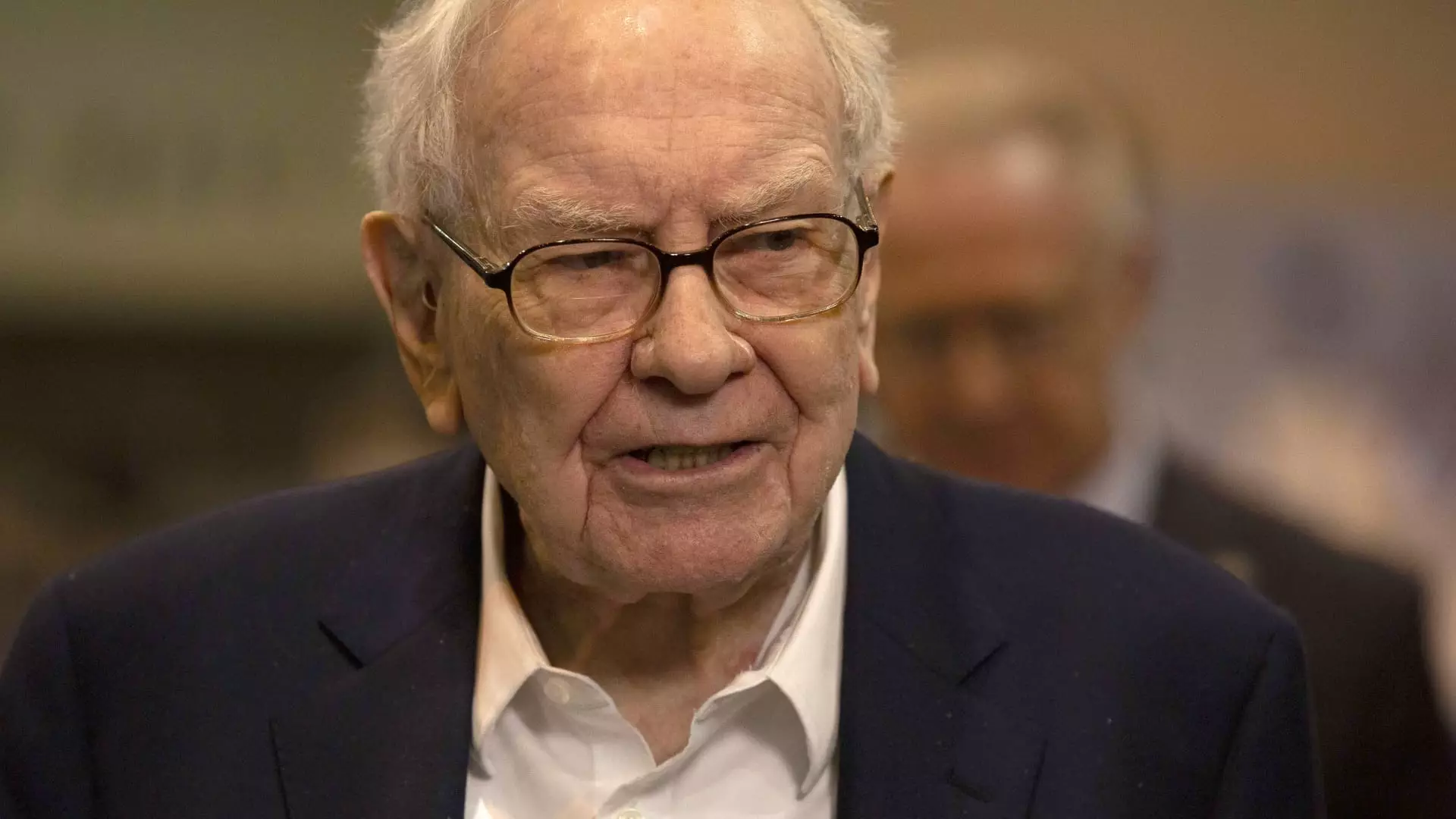In a world where most corporations are leveraging their assets for aggressive growth, Berkshire Hathaway stands out for its staggering cash accumulation, which has surpassed the $325 billion mark. As of the third quarter of 2023, Berkshire’s cash reserves ballooned to an astounding $325.2 billion, marking a considerable increase from the previous quarter’s $276.9 billion. This decision to hoard cash, rather than investing it back into the company or repurchasing shares, speaks volumes about Warren Buffett’s cautious approach towards market uncertainties and investment evaluation.
Buffett’s strategy reveals a divergence from conventional investment wisdom. While most investors eagerly use available capital to acquire assets or return it to shareholders, Buffett’s selling activities, particularly the offloading of substantial portions of his largest equity holdings, raise eyebrows. The decision to reduce stakes in Apple and Bank of America is telling; it reflects not only on the anticipated future performance of these companies but also indicates a broader belief in the volatility of current market conditions.
Berkshire’s recent divestitures are noteworthy: they include a whopping 25% reduction in its Apple holdings and significant sales of Bank of America stock, which have collectively generated upwards of $10 billion since July. This trend extends beyond mere financial maneuvering; it serves as a strategic response to an evolving economic landscape. The conglomerate sold a total of $36.1 billion worth of stocks in the third quarter alone, indicating an ongoing preference for liquidity amidst fluctuating market conditions.
What underpins this selling spree? One possible rationale is the prospect of rising capital gains tax rates, a focal point in Warren Buffett’s recent commentary. As the government grapples with a burgeoning fiscal deficit, there’s a growing consensus that taxation on capital gains may be on the horizon. Buffett’s insight into these potential changes signals an adaptive strategy; by reducing his equity stakes now, he positions Berkshire favorably for any forthcoming tax implications.
Interestingly, while Berkshire Hathaway stock has consistently outperformed the market—having gained 25% year-to-date compared to the S&P 500’s 20.1%—the company did not engage in share repurchases during this period. The prior buyback activity saw significant moderation, with just $345 million spent on repurchases in the second quarter, vastly undershooting the $2 billion invested in each of the preceding quarters. This apparent reluctance to invest in its own stock may suggest Buffett’s belief that the current valuation does not accurately reflect the inherent value of the company.
Berkshire’s repurchase policy, which hinges on the assertion that share buybacks should only occur when the price reflects a conservative estimate of intrinsic value, reflects a disciplined investment philosophy. In high-performing market conditions, such caution is both commendable and, arguably, necessary. However, it also raises questions about whether Buffett’s steadfastness is risking a missed opportunity to capitalize on favorable market conditions.
For the third quarter, Berkshire Hathaway reported operating earnings of $10.1 billion—a 6% decline compared to the same period last year. This decline was primarily attributed to subpar insurance underwriting performance, which is a core segment of Berkshire’s diversified operations. The revenue dip, coupled with soft earnings that fell short of analyst expectations, presents a unifying theme: despite a robust stock market rally, underlying operational challenges remain persistent.
Moreover, while market analysts and investors remain optimistic about a ‘soft landing’ for the economy as inflation stabilizes, there are clouds on the horizon. Recent surges in the 10-year Treasury yield, exceeding 4%, along with broader fiscal concerns, have added layers of complexity to the economic outlook. Influential investors like Paul Tudor Jones have voiced concerns regarding the escalating fiscal deficit, presaging potential instability if spending cuts are not considered by political candidates.
Ultimately, Warren Buffett’s conservative stance amidst an environment of market exuberance embodies both wisdom and wariness. By maintaining an extensive cash reserve, Berkshire Hathaway seems poised to navigate potential downturns or seize future opportunities that heightened liquidity could afford. Yet, this dilemma encapsulates a core challenge in the investment realm: balancing immediate gains against prudent long-term stewardship of capital. As Berkshire continues to evolve its strategies, the question remains—will Buffett’s protective approach pave the way for resilience, or will it leave wealth on the table in an opportunistic marketplace?


Leave a Reply